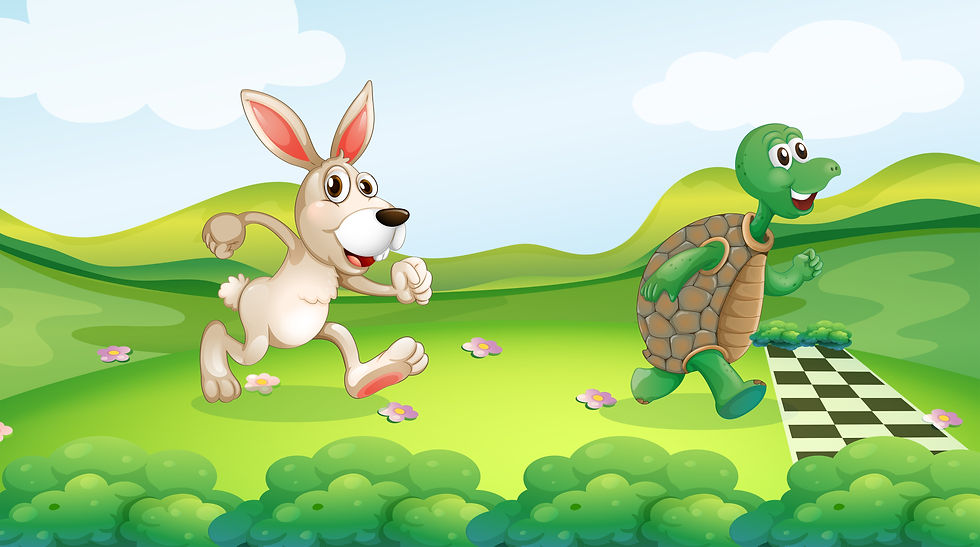Is It Better To Be A Novice Or An Expert?
- Tamar Balkin
- Oct 16, 2017
- 3 min read

Recently, I was privileged to attend a professional development day with a group of mediators who were, on the most part, much older and more experienced than me. The work they do everyday is extremely complex, and their success or otherwise has far reaching implications for multinational and national organisations, governments and society as a whole. Despite their capability, their humility was astounding, and they all still grappled with moments of feeling incompetent. It was as though the old saying was playing out “the more you know the less you know”.
A few days later I was listening to a podcast on sales. In passing, the presenter mentioned how he had perfected his cold calling sales techniques during his very first commission based sales job. I would estimate he would have been about 17 at the time, hungry for an income and immune to the emotional effects of rejection. (D’Urbano, 2017). It seemed that it was his youthful naivety that enabled him to push through situations which a person 20 years his senior would find confronting and soul destroying.
I began to wonder, is it better to be a novice or an expert?
According to Dreyfus & Dreyfus, (1986) and Peterson (2012) in all ‘professions’ there are Five stages of expertise:
1. Novices: Focus on accomplishing immediate tasks, based on clear rules.
2. Advanced beginners: Use rules as guidelines, applying them in new situations, but not able to handle exceptions or unforeseen problems.
3. Competent performers: Form conceptual models of what they do; can handle more complex situations based on experience; typically rely on heuristics or surface features. (“good”)
4. Proficient performers: Have experienced a wide variety of situations and challenges; see the big picture, monitor their own performance, and interpret underlying principles to adjust behaviour based on the context; can handle relatively novel or complex situations.
5. Experts: Identify and solve problems intuitively, with little explicit analysis or planning; see underlying patterns effortlessly and adapt principles to generate and apply appropriate solutions, even to complex and unique situations, in such a way that they generate consistently superior performance. (“great”, “mastery”)
It is the expert level that intrigues me the most. A lot of research into expertise focuses on chess players. De Groot (1965, p. 306) believes that “A chess master does not search for a good move, he sees it”. Other researchers note that we learn more from reflecting on our experiences than from experience itself (Dewey 1933, Rodgers, 2002), which is something that is only possible when our work becomes intuitive (Didierjean and Gobert 2008).
A colleague reminded me that there are some very arrogant experts and perhaps the humility and self-reflection of the experienced mediators was a testament to the type of person who is attracted to this career as well as the expertise of the practitioners. Alternatively, the self-reflection and modesty could perhaps just be a lovely characteristic of the individuals in this professional development group.
References:
de Groot, A.D. (1965). Thought and choice in chess (1st ed.). The Hague: Mouton Publishers.
Didierjean.A., & Gobert,. F (2008) Sherlock Holmes: an expert's view of expertise
British journal of psychology 99, 1-164.
D’Urbano, J. (20/7/2017) Pick up the phone and Sell. Flying Solo PodCast.
https://itunes.apple.com/au/podcast/114-pick-up-the-phone-and-sell/id885670815?i=1000390094479&mt=2
Dreyfus, H. L., & Dreyfus, S. E. (1986). Mind over machine: The power of human intuition and expertise in the era of the computer. New York: Free Press.
Peterson, D.B (2012) Advanced Coaching Accelerating the Journey from Good to Great, May 12,– Closing Keynote, 2nd International Congress on Coaching Psychology. Sydney, Australia
Rodgers (2002) Defining Reflection another look at John Dewey and Reflective Thinking. 104,4, Teachers College Record 842-866.
https://deathtothestockphoto.com/wp-content/uploads/Death_to_Stock_Photography_RideorDie_5-1024x683.jpeg




Comments